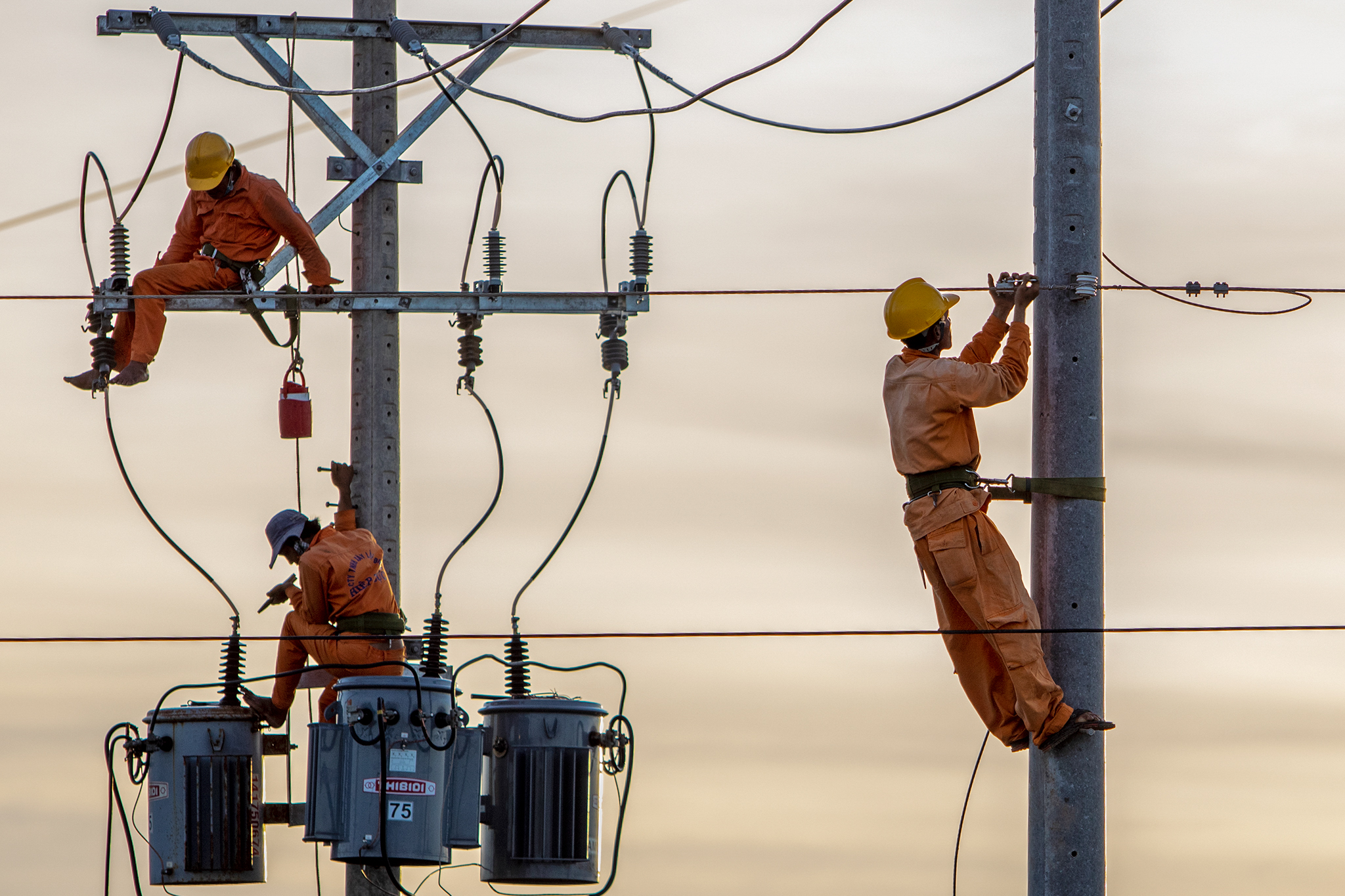Increasing customer choice
Resolution 70 on ensuring national energy security to 2030, with a vision to 2045, was signed on 20/8 by General Secretary To Lam on behalf of the Politburo. This resolution calls for the development of an energy market that is increasingly competitive, transparent, and efficient, while ensuring energy security. The operator needs to effectively implement a direct power purchase mechanism and increase customer choice in accessing and selecting electricity providers that suit their needs.
Currently, EVN (Vietnam Electricity) no longer holds a monopoly on power generation, but it remains the sole buyer in the wholesale market, maintaining a monopoly on transmission and retail. Electricity is currently distributed to residents and businesses through EVN's power companies. When a competitive electricity market is fully realized, the retail segment – the entities directly supplying electricity to end-users – will be separated. This will allow consumers to choose their preferred retailer, rather than solely relying on EVN, as stipulated in the 2024 Electricity Law.
Resolution 70 also states that Vietnam needs to improve its transaction system, including a transparent, stable, and long-term Power Purchase Agreement (PPA) mechanism that ensures the legitimate rights and interests of investors.
Private enterprises are encouraged to participate in energy storage infrastructure projects, such as battery storage, LNG storage, and petrol and oil storage, both onshore and offshore. Additionally, the electricity transmission pricing mechanism must be reformed to attract private sector investment.
 |
Electricity workers maintain the national grid in Long Dien commune, Dong Hai district, Bac Lieu province. Photo: Nguyet Nhi |
Electricity workers maintain the national grid in Long Dien commune, Dong Hai district, Bac Lieu province. Photo: Nguyet Nhi
Vietnam currently has regulations for Direct Power Purchase Agreements (DPPA) between renewable energy generators (solar, wind) and large electricity consumers. According to data from power companies, only about 7,700 customers are eligible for direct purchase, representing 40% of the country's total electricity consumption. However, experts believe this mechanism is not yet attractive due to constraints in the legal framework, infrastructure, and pricing mechanisms, making both investors and customers hesitant.
2030 targets
After 5 years of implementing Resolution 55 of the Politburo, the energy sector has maintained stable growth, fundamentally ensuring national energy security and meeting the requirements for rapid and sustainable development. However, according to the Politburo, the sector still faces limitations in institutions, policies, and management. The progress of many power projects remains slow, and the energy potential has not been effectively exploited. This could lead to a potential power shortage during the double-digit growth phase.
In Resolution 70, the Politburo sets targets for Vietnam by 2030: a total primary energy supply of approximately 150-170 million tons of oil equivalent, a total power capacity of approximately 183-236 GW, and total electricity output of approximately 560-624 billion kWh. The proportion of renewable energy in the total primary energy supply should be around 25-30%. Final energy consumption is targeted at approximately 120-130 million tons of oil equivalent.
| Target by 2030 | Resolution 55/2020 | Resolution 70/2025 |
| Total primary energy supply | 175-190 million TOE | 150-170 million tons of oil equivalent |
| Total power capacity | 125-130 GW | 183-236 GW or higher |
| Total electricity output | 550-600 billion kWh | 560-624 billion kWh |
| Proportion of renewable energy | 15-20% | 25-30% |
| Energy savings compared to the normal development scenario | 7% | 8-10% |
| Reliability of electricity supply | Top 4 in ASEAN | Top 3 in ASEAN |
| Nuclear power | Not directly mentioned | Early deployment of Ninh Thuan 1&2 |
Looking ahead to 2045, the Politburo requires ensuring national energy security and developing an energy market characterized by healthy competition, transparency, and efficiency.
Accordingly, the Politburo has requested accelerating the restructuring of the electricity sector, enhancing competitiveness, transparency, and sustainability. Energy sources must be developed in a balanced and reasonable manner to ensure the highest priority of sufficient electricity for socio-economic development and gradually fulfill international commitments on emission reduction. Large-capacity, high-efficiency, and environmentally friendly power source projects are prioritized for development.
Increasing the proportion of renewable energy
Specific targets for developing power sources have also been outlined. The Ninh Thuan 1 and 2 nuclear power projects are required to be deployed soon with suitable partners, aiming for operation between 2030 and 2035. Concurrently, Vietnam needs to develop a nuclear power program with flexible scales and small modular reactors.
Regarding hydropower, Vietnam aims to maximize the capacity of existing plants, selectively develop some small and medium-sized projects, and accelerate pumped storage hydropower. Hydropower development is linked to increased cooperation and long-term electricity imports from other countries.
Wind and solar power are prioritized for development, aligning with system safety and reasonable costs, particularly for self-consumption sources and rooftop solar power. The Politburo has requested the prompt development of policies and breakthrough mechanisms for offshore wind power development. It also tasked certain state-owned and private enterprises with developing large-scale offshore wind power projects.
Gas-fired thermal power is prioritized for development using domestic gas sources. Authorities will review and remove obstacles to accelerate the implementation of gas-fired power and LNG projects, especially regarding the mechanism and price of electricity trading. Incentives will be created for converting coal-fired thermal power plants to other fuels.
Additionally, the Politburo requires the development and implementation of a national energy storage strategy, investing in the construction of large-scale battery storage systems and other advanced storage technologies.
The Politburo also calls for the development of a project to promote the development of high-quality human resources for the energy sector, including it in the list of key training fields. The goal is to train at least 25,000 to 35,000 engineers and experts in the energy field, with a particular focus on nuclear energy.
Simultaneously, Vietnam needs policies to prioritize training high-quality personnel and attracting foreign experts and overseas Vietnamese to work in nuclear energy, renewable energy, and new energy.
Phuong Dung












